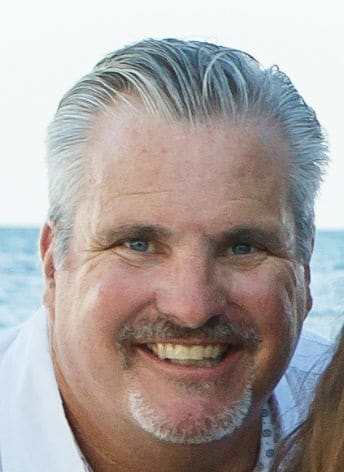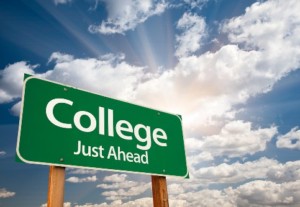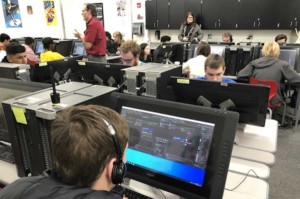Redefining Readiness

Education loves catchphrases. And for the last several years, College and Career Ready, or Future Ready, have topped the list. These terms are intended to capture the changing world and economy. Essentially, we need to get our students ready for whatever they may face educationally, professionally and even technologically. It sounds good. Intentions are good.
But it’s flawed as well. First, wasn’t this supposed to always be the mission of school? For many of us, this is not new. But since the world is undergoing unprecedented change, it seems how we become ready should change dramatically. And that leads to the second concern. Have we really changed much? We have new standards, new assessments, new technologies and more. But far too often, school is still much like it has always been. And that is disconnected, top-down, testing and grade focused… so, how could we redefine readiness?
If the world and the economy are truly going through the transformational change (and they are), doesn’t that imply that our systems need to go through the transformational change? Can we get our students “ready” if we have only slightly adjusted and altered their learning? It’s time for complete and transformational change. Learning, as well as school in general, needs to look and feel very differently in order to approach contemporary and actual readiness for all.
Here are a few areas to focus this readiness transformation:
Pedagogical Predicament
Although we have new standards, new assessments, new technologies and lots of changes, many of our nation’s classrooms struggle to truly adopt a new instructional pedagogy. We have some great program options – STEM, STEAM, CTE, PATHWAYS, ACADEMIES – but we don’t have a common understanding or agreement of an instructional philosophy that encapsulates what we do and how it’s addressing a changing world, student and future. That’s why I am a project-based learning proponent. It is an approach that addresses all of our needs – skills, relevance, application, tech integration, authenticity, collaboration, student ownership, portfolio development and community connections. And I think we have other names that address the same thing. They are inquiry-based learning, problem-based learning, challenge-based learning, strength-based learning and others. To me, they are all derivations of project-based learning and address the same needs and goals. However, if you visit many classrooms today, they are still depending on a pedagogy of the past (think direct, teacher lead instruction in many high schools that essentially revolves around lectures, note taking and test taking. And don’t get me started on higher education which is even further behind). It’s time for our schools, classrooms and educators to truly rally around a common pedagogical approach and be to collectively articulate why it’s the answer to our goals or true readiness.
Update the Core Courses
In addition to understanding the needed pedagogical shift, one way would be to update what our core courses and subjects look like. Throughout our K-12 classrooms, we still ground most of our learning in the four core subjects of English Language Arts, Math, Science, and Social Science. This always sounds good, feels good and looks good to both educators and all stakeholders. It’s what we know and it’s easy to articulate. However, do they address the changes to support our students’ readiness?
As an immediate example, what about English or English Language Arts? At a glance, this seems like something still works. After all, doesn’t reading, writing and speaking seem like what all students need foundationally? Yes, of course they do. But do our English Language Arts classroom truly address the readiness demands? If you look at the standards, they seem to. But in far too many classrooms, teachers are essentially teaching English like they always have. As an example, we still depend too much on fiction versus exposing students to all type of non-fiction that they will need to navigate their future careers and culture. Maybe English should be re-branded as Communications and yes teach reading, writing and speaking. But it should also address the new literacies such as media lit, info lit, technology lit, etc. And that’s just the beginning What if English was called Communication and was redesigned?
English, or Communications, could be the ideal course to lead the charge in true career and future readiness. Keep in mind, that English is the only course that all high school students take all four years. If you ask employers or industry leaders, they will identify desired skills in their employees that center around communication, collaboration, creativity, presentation skills and others that are perfect for a new English approach. What if English classes in high school as an example looked something like this?
- Imagine every student regularly researching, writing and presenting about their career interests and pursuits for years. That would provide them with lots of expanded time and opportunities for the kind of in-depth thinking and reflecting necessary to be career ready.
- Imagine every student having a website and digital portfolio that would house everything from resumes, writing samples, videos and more – all related to their careers and professional pursuits.
- Image every student being able to network with professionals and mentors – both digitally and in person – through contacts made in English class.
- Imagine if every student had the opportunity to pursue an internship, externship or other professional experience option through the work in their English classes?
Beyond English, here is a quick summary of how the other core courses could be transformed.
Math is vital to many industries and global pursuits, but we don’t pursue math that way. We’re caught up separate subjects like algebra, geometry, trigonometry and calculus. We might change the names of these, but the approach is still very much based on textbooks, solving typically abstract and manufactured problem on paper only and regular testing. Real readiness math for all could be about design, finance, engineering, coding, computer science, data analysis, and applications, investing and more. That is real-world problem-solving.
Don’t get me started on Science. Although always about investigation and application to some degree, we can turn the heat up on it a lot. Let’s face it, the entire future of our planet and humanity depend on collective ability to use science to successfully address challenges related to climate change, food insecurity, air quality, safe and available water, renewable energies, medicine and healthcare, mental health and so on.
Even social science could break the history, government, civics trap and focus on research and critical thinking in new ways. We always tell our students that we study history in order to not repeat the past. But we only focus on the past, not how we can impact the future.
Just The Beginning
Truth is that that getting our students ready for the world they are inheriting is important. We can call what we want, but it has to be more than just a slogan or catchphrase. If Education is collectively committed to real readiness, it will require a radically different approach to learning and school. It’s time for a new dominant pedagogy, entirely new courses and to embrace new literacies. More than ever, what we have done before will not get it done going forward.
For more, see:
- Boosting Career Readiness in Dallas
- Smart Review | Rethinking Readiness: Deeper Learning for College, Work, and Life
(To be continued – Part 2 will focus on New Literacies, Skills)
Stay in-the-know with innovations in learning by signing up for the weekly Smart Update.








0 Comments
Leave a Comment
Your email address will not be published. All fields are required.